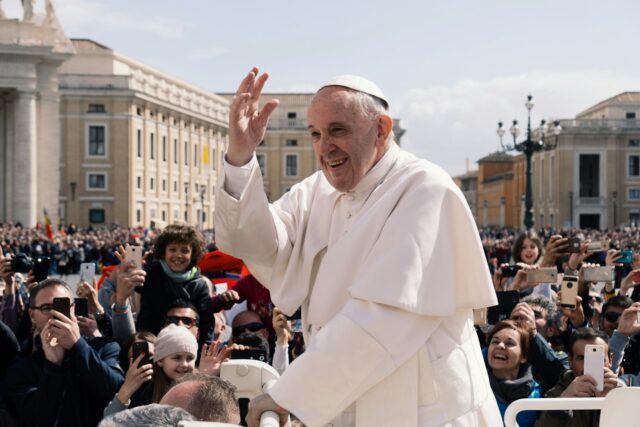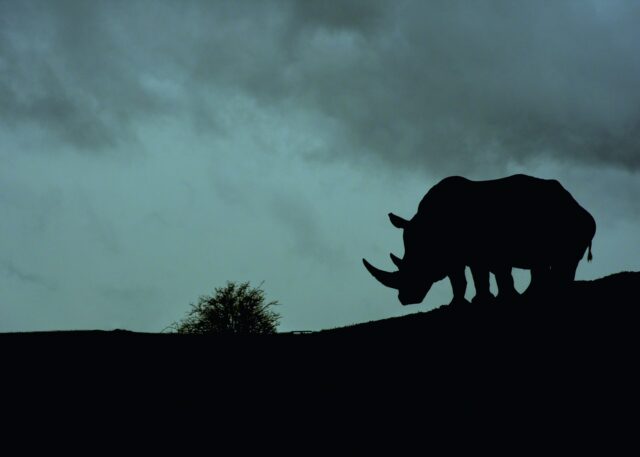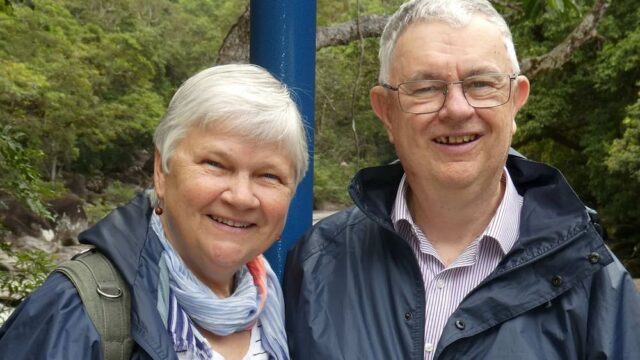

In this article, Professor Michael Clarke explores species extinction from a Christian perspective, drawing on his forty years of experience in conservation biology. This was first published in The Melbourne Anglican, September 2024 issue.
Jesus said, “Consider the birds of the air…”.
Well, we would if we could, but unfortunately, we’ve lost some.
For example, our exquisite Paradise Parrot (pictured above) is extinct, due to the actions of humans. No one can “consider” a Paradise Parrot in the wild, now or ever. And it’s not just birds: Australians are world leaders in mammal extinctions, losing more mammals than any other nation on the planet. We also have the dubious honour of being the first nation to lose a mammal due to climate change, the Bramble Cay Mosaic-tailed Rat. We are in the sixth major extinction event in the planet’s history. But unlike the previous five, this tsunami of extinctions is of our making. Do we care? And if so, why?
As a biologist I might be tempted to draw comfort from the fossil record that shows that extinctions are the rule, not the exception. The vast majority of organisms that have inhabited this planet are now extinct. So why should one species (ours) really care which other species persist with us on the planet at this time in the earth’s history? It is challenging to find an evolutionary explanation for why our species should care. I can assure you that devoting much of my career to preserving endangered birds has not enhanced my Darwinian fitness—that is, my capacity to attract mates and leave more progeny. In fact, I’m sure if I surveyed my fellow conservation biologists, I’d find they have contributed fewer offspring to the global gene pool than the average human!
So, if not for some evolutionary advantage, why do we care if a species becomes extinct? Having put this question to science students and colleagues over the past thirty years, it is clear from their answers that their motivations for caring come from beyond science. Their assessment of the extent of the extinction crisis may be informed by science but their motivation to act comes from somewhere else. And in a way, by the very nature of the scientific method, it should be that way. Science is about discovering how the world is, but agnostic in regard to how it should be. As Einstein put it in Science and God: A Dialogue, “I do not believe that a moral philosophy can ever be founded on a scientific basis. … The valuation of life and all its nobler expressions can only come out of the soul’s yearning toward its own destiny. Every attempt to reduce ethics to scientific formulas must fail.”
The answers to four key questions provide insights into the diversity of beliefs that motivate people to care (or not) about extinctions:
- Are humans viewed as part of nature or separate from it?
- Do humans have any accountability or responsibility to a higher being, ancestors, spirit, power, entity, or force beyond humanity?
- Do non-human organisms have intrinsic value separate from their utilitarian value to humans? If so, to whom?
- Do humans have any responsibility to act in the best interests of future generations of humans, and if so, why?
Five core principles of my Christian faith are relevant in answering these questions and whether or not I should care. My faith teaches me:
- We are part of nature. Yes, we have a unique relationship with the Creator, but the Bible also affirms we are made of the same stuff as the rest of nature—dust (Genesis 2:7 and 3:19). Christians have a legacy of doing great harm when we lose sight of this mystery and behave with arrogant superiority based on a position of privilege, rather than one of grace, gratitude and humility (Psalm 8:4-6).
- The earth belongs to the Creator, not us. We know the Creator cares about the land (Leviticus 25:4). Creation is not merely the backdrop to a human drama. We are very fortunate tenants, not owner-occupiers (Psalm 24:1, Leviticus 25:23). Going on our recent form as tenants, we should not be assuming we’ll get our bond back, if we ever find another planet to live on!
- Part of being special among creation is that God has given us, of all species, a particular responsibility to be faithful stewards of this gift (Genesis 2:15). Caring for nature is not an optional elective a Christian should be deliberating over—from the beginning it’s been part of every human’s job description.
- A core tenet of Jesus’ teaching was “love your neighbour as yourself” (Mark 12:31). Who is my neighbour, ecologically? What I do, and how I care for creation where I am, can potentially affect many neighbours for good or for bad, near or far, human and non-human. If I am to “love my neighbour as myself”, then I can’t walk past on the other side of the street, hoping someone else will clean up the ecological mess we’ve all contributed to.
- Finally, the eighth commandment, “Thou shalt not steal,” does not leave any doubt that shirking our responsibility to care for the garden, exploiting the planet and depriving others of its bounty, is stealing from our neighbours and future generations. My generation’s greed and negligence are intergenerational theft.
Our neglect can’t be concealed behind some misplaced optimism that God will bail us out at the end of the age—lethargic bystanders, preoccupied with life after death, to the exclusion of life on the planet, here and now. When it comes to caring for humans, we know it is not a zero-sum game, choosing between giving medical care and sharing the gospel. Christians (and Jesus) see no issue with working to preserve human life, even though we all die. So, should not creation care—including species preservation—also be seen as one of our Christian obligations, even if God plans to restore this earth? Christian hope is not for redemption from the world, but for the redemption of the world. Jesus’ life and resurrection taught us God’s Kingdom is coming “on earth, as it is in heaven.”
We are called to work towards that kingdom. The main challenges in that work are moral, rather than scientific. We know what we need to do. We have the opportunity and responsibility to confess our past failures and commit to being wiser stewards of the extraordinary gifts the Creator has entrusted to us.
TEN WAYS to support species preservation and planetary health:
- Support greater investment globally in the education of girls, one of the most beneficial actions for nature through its impact on population growth and equity.
- Lobby all levels of society to take substantial individual and collective action to reduce emissions and conserve nature through stopping habitat loss and fragmentation, reducing threats posed by pests and weeds, and committing to repairing the damage caused by past mistakes. This means governments, institutions, businesses, NGOs, and churches. Business as usual is not an option.
- Eat a more locally sourced, sustainably produced diet, which does not involve loss of native vegetation.
- Walk, cycle, take public transport. Transition away from fossil fuel-based land travel.
- Minimise air travel, pay for carbon offsets, and try to ensure they are genuine.
- Minimise home energy use, and shift to renewables.
- Reduce, reuse, recycle.
- Invest wisely with banks, shares, super funds whose values align with your own.
- Volunteer with groups conserving nature, such as Landcare, Friends Groups, Bush Heritage.
- Inspire hope, rekindle a spirit of optimism grounded in faith in a gracious Creator.
Featured image: The Paradise Parrot or Beautiful Parakeet (Psephotus pulcherrimus) illustrated by Elizabeth Gould for John Gould’s Birds of Australia (1972 Edition, 8 volumes), via rawpixel.com. Public domain.














